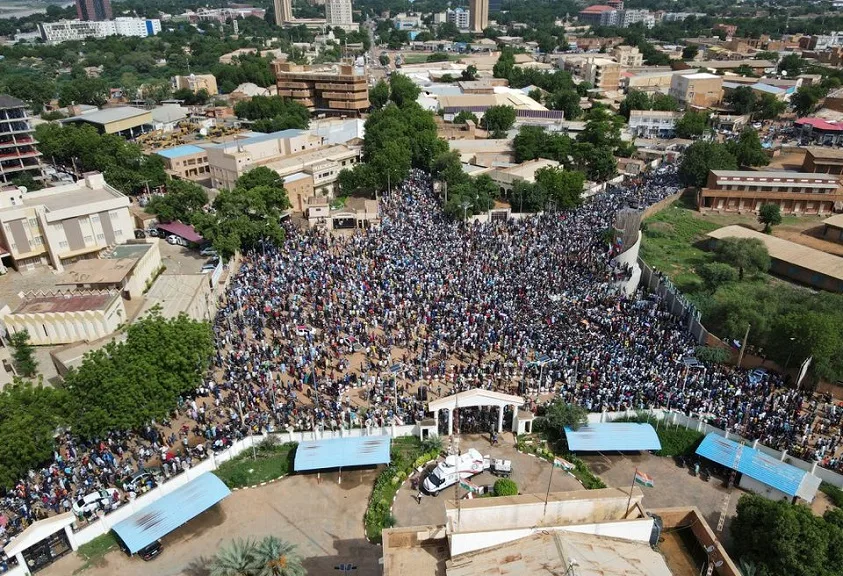West African Nations Impose Sanctions and Threaten Force as Niger’s Coup Crisis Escalates
The Economic Community of West African States (ECOWAS), consisting of 15 nations, responded strongly to Niger’s seventh coup in recent years, declaring that if the constitutional order is not restored, they may resort to using force. The situation has escalated further with the closure of borders with Niger, the banning of commercial flights, and the freezing of financial transactions and national assets. Military officials involved in the coup are also facing travel bans and asset freezes.
Chad’s President Mahamat Idriss Deby, who came to power after a coup in 2021, has volunteered to speak to the military leaders in Niger in an effort to mediate the crisis. However, the imposition of sanctions has raised concerns about its impact on Niger’s fragile economy, heavily reliant on international partners for financial support.
Niger’s strategic importance in countering insurgent groups linked to al Qaeda and the Islamic State in the Sahel has raised further concerns, with fears that the coup could pave the way for increased Russian influence in the region. Thousands of French troops had to withdraw from neighboring Mali and Burkina Faso following coups in those countries.
The situation in Niger has sparked protests in the capital, Niamey, with demonstrators expressing their discontent against foreign interference. France’s embassy was targeted during the protests, leading to the condemnation of violence by the French government.
As the crisis unfolds, the international community remains watchful, with ECOWAS calling for an end to the coup era in Africa. The ramifications of the imposed sanctions on Niger’s struggling economy and the potential for regional instability are being closely monitored.
Note: The report is based on information provided by REUTERS
